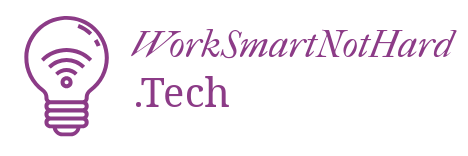Navigating the Digital Marketing Landscape of 2023
In the fast-paced world of digital marketing, standing still is simply not an option. As the sands of technology shift beneath our feet, a new era has dawned, bringing forth a tantalizing array of opportunities and challenges. Today, we are shedding light on 2023’s digital marketing landscape – a landscape that demands savviness, adaptability, and integral marketing services like never before.
As our website development and SEO/digital marketing clients’ needs evolve, we understand that to thrive in this digital age, we must be more than just spectators. Today, we share this insight as a sneak peek into the dynamic changes that are happening in marketing. We invite your business to equip yourselves with knowledge and vision, for this exhilarating journey has just begun. You can review our Image Management AI statement here.
The Social Media Revolution
Twitter ‘X’ and Instagram Threads
The rebranding of Twitter to ‘X’ and the introduction of Instagram’s Threads have reshaped how businesses engage with their audiences. These platforms are not just about social interaction; they are powerful tools for brand storytelling and customer engagement.
Twitter’s transformation into ‘X’ is more than a mere name change. It represents a shift towards a more integrated platform where businesses can leverage new features to enhance their marketing strategies. With ‘X’, brands can create more personalized interactions, utilizing advanced analytics to understand their audience better. This evolution allows for more targeted advertising, ensuring that marketing efforts are not just seen but felt by the right people.
Instagram’s Threads, on the other hand, offers a unique space for intimate and direct communication. It’s a place where brands can foster deeper connections with their audience, sharing behind-the-scenes content and engaging in real-time conversations. This platform is perfect for businesses looking to build a community around their brand, offering a more personal touch in an increasingly digital world.
TikTok’s Continued Dominance
TikTok continues to dominate the social media scene, offering unique opportunities for brands to connect with younger audiences through creative and engaging content.
The platform’s algorithm is designed to surface content that resonates with users, making it an ideal space for brands to showcase their creativity. With TikTok, businesses can experiment with different content formats, from short-form videos to interactive challenges, capturing the attention of a diverse audience.
Moreover, TikTok’s emphasis on authenticity and creativity aligns perfectly with the current consumer demand for genuine brand interactions. By leveraging TikTok’s features, brands can create content that not only entertains but also builds trust and loyalty among their audience.
The AI Transformation in Marketing
ChatGPT and AI Tools
Artificial Intelligence, particularly tools like ChatGPT, is revolutionizing digital marketing. These tools enhance workflow optimization and provide innovative ways to engage with customers, making them indispensable in modern marketing strategies.
ChatGPT, for instance, offers businesses the ability to automate customer interactions, providing instant responses to queries and enhancing the overall customer experience. This not only saves time but also ensures that customers receive consistent and accurate information, building trust and satisfaction.
AI tools also offer advanced analytics capabilities, allowing businesses to gain deeper insights into customer behavior and preferences. By analyzing data in real-time, brands can make informed decisions, tailoring their marketing strategies to meet the evolving needs of their audience.
Preparing for the AI Future
To remain competitive, businesses must stay informed about AI developments and integrate these technologies into their marketing strategies effectively.
This involves not only adopting AI tools but also investing in training and development to ensure that teams are equipped to leverage these technologies to their full potential. By staying ahead of the curve, businesses can unlock new opportunities and drive growth in an increasingly competitive market.
Data-Driven Marketing in the New Era
Google’s Analytics Transition
The shift from third-party data to first-party data is transforming how businesses connect with their audiences. Google’s transition from Universal Analytics to Google Analytics 4 is a significant change that marketers need to adapt to for better insights and customer engagement.
Google Analytics 4 offers a more comprehensive view of the customer journey, providing insights into how users interact with a brand across different platforms and devices. This allows businesses to create more personalized and targeted marketing campaigns, enhancing the overall customer experience.
Moreover, the focus on first-party data ensures that businesses have greater control over their data, allowing for more accurate and reliable insights. This shift is crucial in an era where data privacy is a top concern, ensuring that businesses can build trust with their audience while still gaining valuable insights.
Leveraging First-Party Data
Utilizing first-party data allows businesses to forge deeper connections with their audiences, providing personalized experiences that drive customer loyalty.
By collecting and analyzing data directly from their audience, businesses can gain a better understanding of their preferences and behaviors. This allows for more targeted marketing efforts, ensuring that messages resonate with the right people at the right time.
Furthermore, first-party data provides a more accurate and reliable source of information, allowing businesses to make informed decisions and optimize their marketing strategies for maximum impact.
The Power of Video and Livestreaming
Short-Form Video Trends
Short-form videos are gaining traction, offering dynamic ways to capture audience attention and convey brand messages effectively.
Platforms like TikTok and Instagram Reels have popularized short-form content, providing businesses with a unique opportunity to engage with their audience in a fun and creative way. These videos are perfect for capturing attention quickly, making them ideal for brands looking to make a lasting impression.
Moreover, short-form videos are highly shareable, allowing brands to reach a wider audience and increase their visibility. By creating content that resonates with their audience, businesses can build brand awareness and drive engagement.
Engaging Audiences with Livestreaming
Livestreaming is becoming a key tool for real-time audience engagement, allowing brands to interact with their customers in an authentic and immediate way.
Platforms like Facebook Live and YouTube Live offer businesses the opportunity to connect with their audience in real-time, providing a more personal and interactive experience. This is perfect for brands looking to build a community around their brand, offering a space for open dialogue and engagement.
Livestreaming also allows businesses to showcase their products and services in a more dynamic way, providing a behind-the-scenes look at their operations and building trust with their audience. By leveraging this powerful tool, brands can create meaningful connections with their audience and drive engagement.
Blockchain’s Role in Marketing Security
Building Trust with Blockchain
Blockchain technology is enhancing security and transparency in digital transactions, building consumer trust and ensuring data integrity.
By providing a decentralized and tamper-proof system, blockchain ensures that data is secure and transparent, allowing businesses to build trust with their audience. This is particularly important in an era where data privacy is a top concern, ensuring that businesses can protect their customers’ information while still gaining valuable insights.
Moreover, blockchain offers businesses the opportunity to create more transparent and accountable marketing practices, ensuring that their efforts are ethical and trustworthy. By leveraging this technology, brands can build a reputation for integrity and trustworthiness, driving customer loyalty and engagement.
Embracing the Creator Economy
Influencer Partnerships
The rise of the creator economy is highlighted, where brands collaborate with influencers to reach connected audiences. This trend is crucial for building trust and authenticity in brand messaging.
Influencer partnerships offer businesses the opportunity to reach a wider audience and build trust with their audience. By collaborating with influencers, brands can leverage their reach and credibility to create authentic and engaging content that resonates with their audience.
Moreover, influencer partnerships offer businesses the opportunity to tap into new markets and demographics, expanding their reach and visibility. By building relationships with influencers, brands can create a more personalized and authentic brand experience, driving engagement and loyalty.
Authenticity in Brand Messaging
Maintaining authenticity through creator partnerships is essential for brands to resonate with their audiences and build lasting relationships.
By collaborating with influencers, brands can create content that is genuine and relatable, building trust and credibility with their audience. This is particularly important in an era where consumers are increasingly seeking authentic and transparent brand interactions.
Moreover, authenticity in brand messaging ensures that businesses can build a loyal and engaged audience, driving long-term success and growth. By prioritizing authenticity, brands can create meaningful connections with their audience and drive engagement.
Prioritizing Equity and Diversity
Creating Inclusive Campaigns
There is a growing emphasis on equity and diversity within marketing strategies. Companies are focusing on creating more inclusive and equitable workplaces, which is reflected in their marketing approaches.
By prioritizing equity and diversity, businesses can create marketing campaigns that resonate with a wider audience, ensuring that their efforts are inclusive and representative of diverse perspectives. This is particularly important in an era where consumers are increasingly seeking brands that align with their values and beliefs.
Moreover, creating inclusive campaigns ensures that businesses can build a reputation for integrity and trustworthiness, driving customer loyalty and engagement. By prioritizing equity and diversity, brands can create meaningful connections with their audience and drive engagement.
Building an Equitable Workplace
An equitable workplace is not only a moral imperative but also a strategic advantage, influencing how brands are perceived and how they connect with diverse audiences.
By prioritizing equity and diversity within their workplace, businesses can create a more inclusive and supportive environment, ensuring that their efforts are representative of diverse perspectives. This is particularly important in an era where consumers are increasingly seeking brands that align with their values and beliefs.
Moreover, building an equitable workplace ensures that businesses can attract and retain top talent, driving long-term success and growth. By prioritizing equity and diversity, brands can create meaningful connections with their audience and drive engagement.

